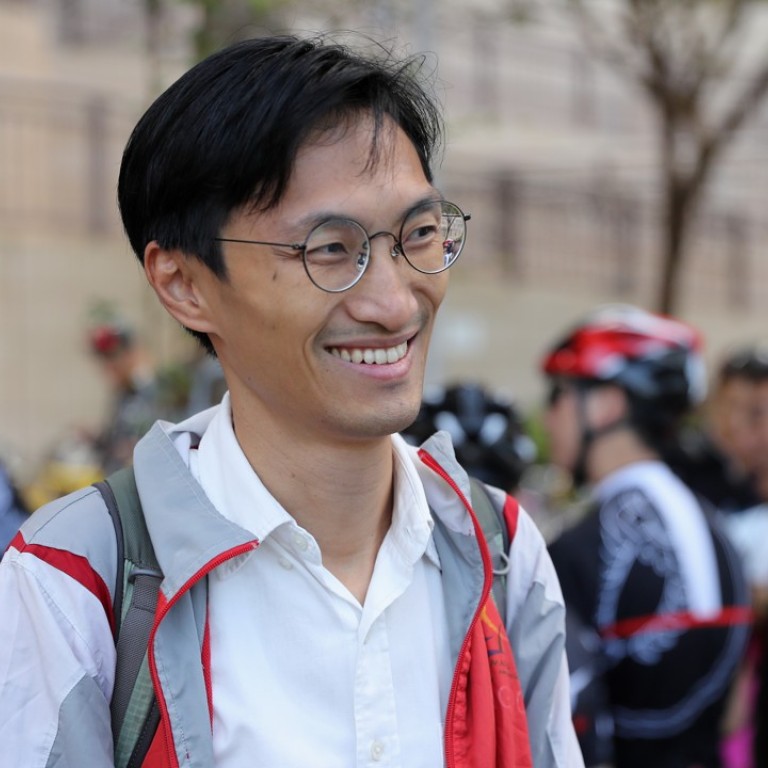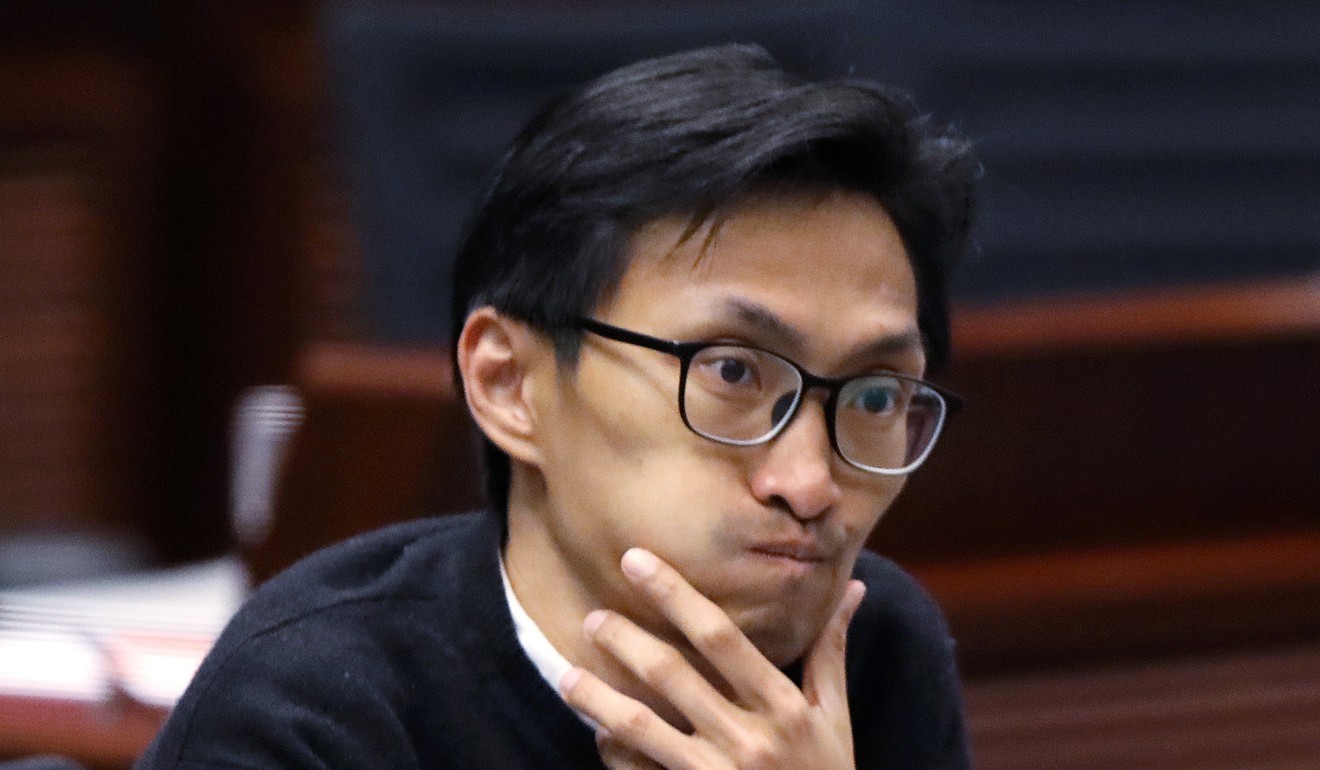
Hong Kong lawmaker Eddie Chu disqualified from running in village election after being questioned twice on independence
- Chu hits back, says he should not have been barred from running as he is not an advocate of independence
Lawmaker Eddie Chu Hoi-dick has been disqualified from running in a rural representative election, after electoral officials twice questioned his stance on Hong Kong independence and self-determination.
Chu was told on Sunday by the returning officer for the election for the non-indigenous villagers’ head post at Yuen Kong Sun Tsuen, in Yuen Long, that his nomination was invalid because he had “implicitly” maintained his support for self-determination since 2016.
Although Chu had argued that he was duly sworn in as a lawmaker that year, returning officer Enoch Yuen Ka-lok said getting a green light in the past was “not sufficient”.

“As each case must be considered and assessed at the time of the nomination concerned, the validity of the nomination of Chu in the 2016 Legislative Council general election, or his Legco oath per se, is not sufficient for determining the validity of any future nominations of Chu,” Yuen wrote in a 16-page decision.
It is the first time a candidate has been barred from running in the rural election because of their political stance.
Lawyers question power of returning officers to disqualify election candidates
Without naming Chu, the government said on Sunday night that it agreed and supported the decision of the returning officer, and denied the move amounted to political censorship.
Chu, speaking outside the Legco complex, said he should not have been barred from running as he was not an advocate for independence.
“I think the incident has revealed this logic – not only must you not advocate independence, you have to oppose it,” he said.
“I have not moved the goalposts. I have not changed. The ones that moved the goalposts are the Special Administrative Region government, and the liaison office, and Beijing, which has been manipulating the SAR government behind the scenes.
Is there anything more ridiculous than disqualifying an incumbent legislator from running for the post of a village chief
“I once expected the SAR government would stop making more ridiculous decisions. But is there anything more ridiculous than disqualifying an incumbent legislator from running for the post of a village chief?”
He warned the move could draw a huge backlash locally and internationally.
“There will be consequences, be it the public losing hope in the government, or other countries’ perception of ‘one country, two systems’,” Chu said, referring to the framework under which Beijing governs Hong Kong.
“One day we will fight back again.”
Chu said he would talk with his legal team about how to follow up on the ban.
But, no candidate has ever been banned from the village election under this requirement.
More questions for lawmaker over pledge of allegiance ahead of poll
Chu, who had in the past advocated for the city’s self-determination, was asked by Yuen to answer five additional questions about Hong Kong’s status after submitting his nomination form more than a week ago.
In his decision, Yuen said Chu’s refusal to answer the question, along with supplying other “irrelevant” answers, implicitly confirmed his support for “independence as an option for Hong Kong people”.
Justice department advised official who barred Lau Siu-lai from by-election
Chu is the 10th person since 2016 to be disqualified from running for election because of issues with allegiance. The other nine cases involved Legco elections.
The government, meanwhile, said it had a duty to implement and uphold the Basic Law, and to ensure that all elections would be conducted in accordance with the mini-constitution and electoral laws.
“[That] self-determination or advocating independence could be an option for Hong Kong is inconsistent with the constitutional and legal status of the HKSAR as stipulated in the Basic Law,” its statement read.
“There is no question of any political censorship, restriction of the freedom of speech, or deprivation of the right to stand for elections as alleged by some members of the community.”
But, political commentator Johnny Lau Yui-siu warned the move would only give rise to further conflict in society.
“The government has taken an unreasonable path for political goals. In the long run this will cause another eruption of public frustration,” said Lau, who described such disqualifications as “one size fits all” and noted that Chu may want to launch an appeal.
He said the government, with more resources, would have the upper hand in potential legal battles.
The allegiance requirement was included in the Village Representative Election Ordinance when the government introduced it to formalise such elections in the New Territories in 2002. No lawmaker raised any concerns on the requirement when Legco scrutinised the bill, which passed in 2003.
Nominations for the election closed on November 22, with the Home Affairs Department receiving 1,858 in total. There are 1,540 village representative seats in total.
After vetting and verifying the eligibility of the candidates, the returning officers will publish a gazette notice of valid nominations on December 6. The election is on January 6.



